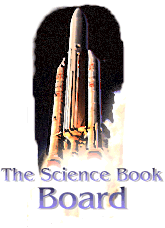EDITORIAL INFORMATION
The XIVth "Rencontres de
Moriond" were held in Méribel (Savoie, France) on
march 12-19, 1994 on the topic "Clusters of
Galaxies". This subject was chosen because clusters
of galaxies are critically important in extragalactic
astronomy and cosmology for both theoretical and
observational reasons.
(Extracted from the foreword, by the editors).

GENERAL
TABLE OF CONTENTS
- -Avant-propos.
- -Foreword.
- -Conference Programme.
- -Contents.
- -Invited and Contributed
Papers.
- -News on Dark-Matter in
Galaxies and Clusters.
-Cluster Dynamics and Cluster Masses (I).
-Substructure: Clues to Cluster Formation.
-Fractal Cold Gas as Dark Matter in Galaxies and
Clusters.
-Luminosity Functions of Poor Clusters.
-Internal Dynamics of ESO Key-Programme Clusters.
-Optical Radii of 90 Galaxy Clusters.
-The Mass of the Virgo Cluster Inferred from
Infall.
-A New Survey in the Central Parts of the Coma
Cluster.
-M1-M* Correlation in Galaxy Clusters.
-A Measurement of Diffuse Light in Abell 665.
-The Effect of the Cluster Environment on
Galaxies (I).
-Spirals in Clusters do not have Falling Rotation
Curves.
-X-Ray Evolution of Clusters of Galaxies (I).
-The Butcher-Oemler Effect in Radio Selected
Groups of Galaxies.
-Radio Properties of Galaxies in Clusters (I).
-Quantitative Results from WF/PC Imaging of the
Distant, Rich Cluster 0016 + 16.
-Interactions and the Blue Galaxies in Distant
Clusters.
-The Dynamical State of High Redshift Clusters.
-Fabry-Perot and Multi-Filter Observations of
Distant Galaxy Clusters.
-Color Evolution of Cluster Galaxies from z=0 to
z=1.
-Large Scale Morphological Segregation in Galaxy
Catalogs.
-The Structure of Clusters of Galaxies as
Observed by ROSAT (I).
-Observation of the X-Ray Cluster A2256 with
ROSAT.
-ASCA Data on Galaxy Clusters.
-Temperature Structure and Heavy Element
Distribution in the X-Ray Emitting ICM.
-X-Ray Spectra of Clusters of Galaxies.
-A Search for Substructures in 11 ROSAT Clusters
Using Wavelet Techniques.
-Model-Free Derivation of the Mass Distribution
from X-Ray Images of Clusters.
-Gas Structures in the Cores of Clusters (I).
-X-Ray, Radio, and Optical Structures in Cooling
Flow Clusters.
-Optical Spectroscopy of the ROSAT X-Ray
Brightest Clusters.
-The Reliability of X-Ray Constraints on
Intrinsic Cluster Shapes.
-The Enrichment of the Intra-Cluster Medium.
-Iron as a Tracer in Clusters of Galaxies.
-ROSAT Studies of Compact Galaxy Groups.
-The Sunyaev-Zeld'dovich Effect in Clusters.
-Simulations of Clusters of Galaxies (I).
-Models of the ICM with Ejection from Galaxies.
-Simulations of Clusters Using Hydra: Adaptative
PPPM + SPH.
-The Mass Function in the Adhesion Model.
-The Fundamental Plane of Galaxy Clusters.
-Mapping the Dark Matter in Clusters.
-X-Ray Emission and S-Z Effect from Clusters of
Galaxies: Implications for Cosmology.
-Dominant Galaxies in Bimodal Clusters.
-The Galaxy Group/Cosmology Connections.
-The Filtering Evolution of Peaks.
-Mass Distributions in Luminous X-Ray Clusters.
-The Zero-Point of the Cluster Cluster
Correlation Function.
-Rich Clusters of Galaxies and the Origin of
Structure in the Universe (I).
-Superclusters on the Sky.
-Observations of Clusters Correlations (I).
-Arcs and Arclets in Clusters of Galaxies (I).
-Applications of Gravitationally Lensed Long Arcs
in Clusters of Galaxies.
-Simulations of Gravitational Lensing by Clusters
of Galaxies.
- -Poster Papers (26).
- -List of Participants.

OUR
REVIEW
The presence of the great
observation media in space as well as the improvements in
the instruments on Earth are giving a tremendous impulse
to what we could call "macroastronomy". The
clusters of galaxies are some of the biggest structures
existing in the universe, and, from their study,
interesting and basic cosmological implications affecting
the future of the Cosmos can be deducted.
That`s why such an important
topic could not fail to be frequently updated. In this
sense, the already famous "Encounters of
Moriond", a necessary meeting for the European
astronomy, and in actual fact for astronomy all over the
world, have become a perfect setting to present the
latest theories and discoveries in this respect.
Therefore, the papers here presented quite often are the
fruit of years of research, works which merit their being
made available to the scientific community.
The book, then, is aimed at
professionals and advanced students, as well as anyone
having a genuine interests in astrophysics and cosmology.
|
![]()

![]()